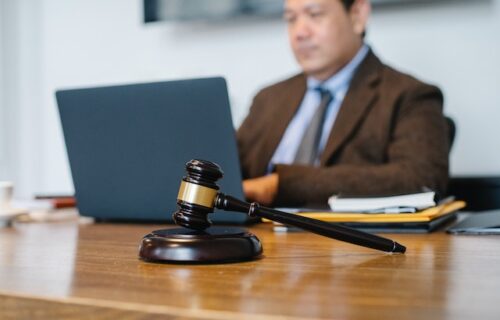
The validity of a premises liability claim depends on numerous factors. In New Jersey courts, a person might be able to seek compensation for an injury if it was sustained on someone else’s property due to the property owner’s failure to maintain safe premises for visitors. However, there are a few different types of visitors in the legal world: invitees, licensees, and trespassers. These distinctions may seem insignificant to some, but the difference matters in the courtroom. To find out if you can earn compensation as an invitee or a licensee after a premises injury, read this blog or speak with a Middlesex County Slip and Fall Accident Attorney today!
HOW IS AN INVITEE DIFFERENT FROM A LICENSEE?
According to New Jersey courts, an invitee is someone that a property owner either explicitly or implicitly invites to their premises, usually for business or transactional reasons. In general, property owners expect invitees to visit their property. Meanwhile, a licensee is someone that has permission to be on the premises, usually for social reasons. Property owners don’t always expect licensees to be on their premises, but licensees are not trespassing. A visitor would be considered a trespasser if they unlawfully enter private property without permission.
Examples of invitees include:
- Contractors hired to work on a house
- Shoppers in a grocery or retail store
- Delivery persons
- Customers in a restaurant
- Hotel guests
Examples of licensees include:
- Guests at a party
- Neighbors stopping by
- Friends visiting a residence
- Religious missionaries
- Door-to-door salespeople
WHY DOES IT MATTER IN NEW JERSEY COURTS?
Whether or not you have a valid premises liability claim depends on if you were an invitee or a licensee on someone’s property. This is because property owners have a higher duty of care for invitees, according to New Jersey courts. If you’re an invitee on private property and you are injured due to a hazard that hasn’t been properly fixed or blocked off by the owner, you could be eligible for compensation. You might only earn restitution if the hazard wasn’t easily noticeable/avoidable but should have been known by the premises owner. If you were a licensee, you’ll only be eligible for compensation if the property owner didn’t warn you about the hazard. While property owners have a duty of reasonable care for invitees, they only have a duty to warn about possible dangers to licensees.
Have you recently been injured on someone else’s property? Are you seeking an effective personal injury lawyer who has your best interests in mind? Look no further because Stathis & Leonardis, LLC is here to fight for you! Contact our highly experienced team today for an initial consultation.
